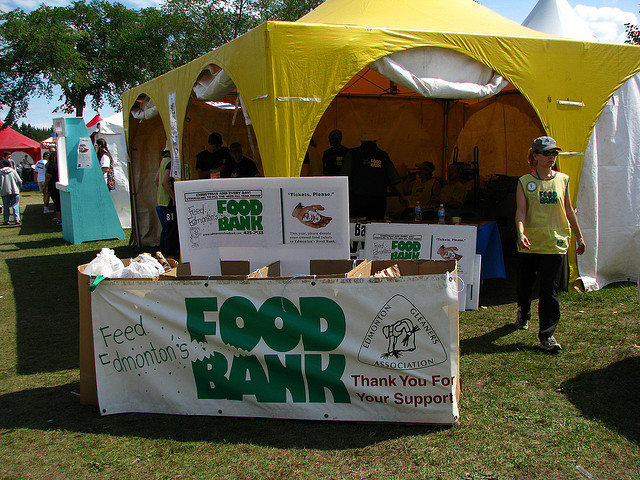rabble is expanding our Parliamentary Bureau and we need your help! Support us on Patreon today!
It’s the time of year for giving and for overeating. Here’s what our national dining table looks like.
At one end of the country’s dining table it’s the season for feasts and purchasing 5.6 million litres of eggnog throughout the month of December. It’s about carving into one of the 21.5 million turkeys that are produced throughout the country annually and it’s about giving into a food system that throws out 300 million meals worth of edible food each year.
At the other end of the country’s dining table are families who struggle to feed themselves, with 79,000 new clients accessing food banks each month. It’s filled with 13 percent of Canadian households who struggle with food-insecurity.
Offering one possible solution to this glaring juxtaposition is the National Zero Waste Council (NZWC).
Proposed this fall, the NZWC is reaching out to municipalities and businesses to lobby the federal government to introduce a tax incentive for diverting edible food waste to registered charities. These organizations include food communities such as food banks, shelters and community kitchens.
The NZWC also boasts environmental benefits with their proposal, as more edible food would be diverted from landfills — a source of waste that contributes to 3 percent of Canada’s greenhouse gas emissions.
To receive the tax benefit, businesses would report the cost of manufactured goods they donate as deductible credit. The NZWC says this easy benefit would encourage businesses to avoid throwing away food — a habit that has become the most cost-effective decision. A well-established program such as this one would also connect business to food banks and strengthen communication between them to make donating easier.
While on the surface the proposal appears to be a straightforward solution, some food banks, including the Greater Vancouver Food Bank (GVFB) have expressed concerns about tax incentives.
“Historically the success of food banks has been measured by the quantity of food received, ignoring the nutritional quality,” they said in a statement.
The GVFB expressed concern that failing to define “edible” food could result in donations that aren’t nutritional. They instead requested that definitions of healthy and edible food be clearly outlined. They also suggested that a tax incentive be used to encourage farmers to harvest fresh produce that does not meet industry standards so that it can be given to food distribution organizations at a reduced rate.
There are even some issues that members of the NZWC Food Working Group that developed the proposal have pointed out.
“While the tax incentive would not address the systemic causes of poverty and food insecurity, it’s one of a suite of tools needed to prevent the waste of edible food,” said Mike Layton, a Toronto City Councillor and NZWC member, in a statement.
He’s right — the tax incentive certainly lacks a way of addressing the issue of food insecurity at its root and doesn’t help those in need put food on their tables for themselves.
The NZWC also states that the tax incentive would “save businesses and municipalities on costs of production, collection, processing and disposal of food waste.” Yet it doesn’t address the issue of overproduction in the Canadian food industry to begin with, which leads to 40 percent of the food produced in Canada ending up in landfills.
At this point, while several cities across Canada have supported the proposal for a tax incentive, the federal government still hasn’t addressed it and the NZWC is still seeking support of municipalities and businesses.
Alyse Kotyk is a Vancouver-based writer and editor with a passion for social justice, storytelling and tea. She studied English Literature and Global Development at Queen’s University and believes in the ability to make positive changes through media that digs deep, asks questions and shares narratives. Alyse was the Editor of Servants Quarters and has written for the Queen’s News Centre, Quietly Media and the Vancouver Observer.
rabble is expanding our Parliamentary Bureau and we need your help! Support us on Patreon today!




